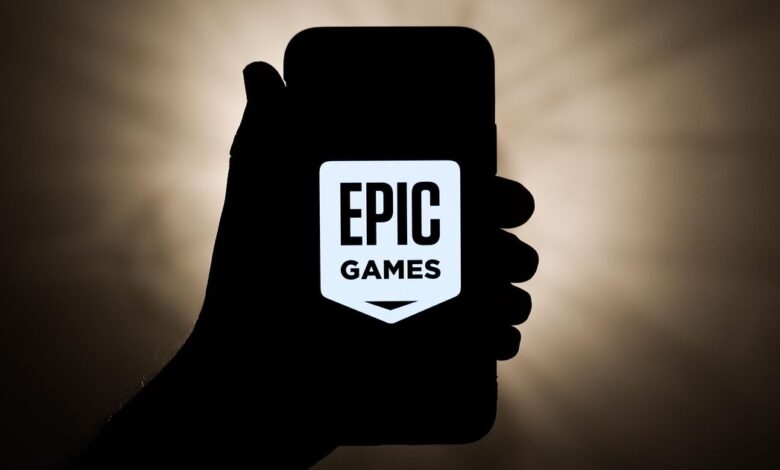Fortnite battles Apple: Epic says it’s fighting for all developers, but admits it wanted a special deal

[ad_1]
Epic Games and Apple are battling it out in what’s being called one of the most important tech antitrust cases in years.
Getty Images
When Katherine Forrest began her opening statement for Epic Games in its battle against Apple in a California court on Monday, she blasted the iPhone maker as a monopolist, holding app makers hostage to its onerous licensing terms and commission structure, taking up to 30% off subscriptions and other sales without explicitly telling users. But when she asked a seemingly benign question of Epic CEO Tim Sweeney on Tuesday, she revealed potential hypocrisy on her side too.
In the summer of 2020, Sweeney had sent emails to Apple executives asking them to allow his company to offer its own app store for iPhones, effectively an alternative to the system Apple’s used since 2008. Apple has only allowed app developers to offer programs to iPhone and iPad users by submitting apps to its store where they go under review before being offered for sale or for free. Apple also requires all app developers to use its payment processing service if they want to sell subscriptions or in-app items, like a new look for a character or a power-up for their next turn.
Sweeney at the time appeared to be seeking a separate and special deal with Apple, something that didn’t fit with the company’s blustery lawsuit in which Forrest had claimed, “Epic is suing for change, not just for itself, but for all developers.”
“The market will not self correct,” she added. That requires the intervention of force, more powerful than even the largest company in the world has ever seen: Our justice system.”
On Tuesday, she asked the soft-spoken Sweeney whether he’d have accepted a side deal with Apple, effectively getting special treatment while other app developers continue losing out. “Yes, I would have,” he said.
The moment underscored the tough case Epic has to push in its battle against one of tech’s biggest giants. Epic’s hit Fortnite game was kicked from Apple’s App Store in August last year after Sweeney approved a change to the app, purposely breaking Apple’s rules against using alternative payment processing. Apple says its payment processing and strict app store rules are important to the company, helping it stand out from Google’s competing and more widely used Android software, which allows “side-loading” apps and alternative app stores.
The outcome of the lawsuit could change everything we know about how Apple’s App Store works, as well as Google’s Play store too. Apple could be forced to disregard its concerns over app security, allowing alternative app stores and payment processing into its devices. Legal experts, lawmakers and regulators are closely watching as well, seeing the case as a first look at how antitrust laws could apply to tech giants.
Below are some of the things we learned during the court trial:
- Sweeney prefers an iPhone. When Apple’s lawyer asked if part of the reason Sweeney prefers the device is Apple’s treatment of customer data, privacy and security, he responded, “correct.” He’d been handed Android devices but confirmed he gave them away.
- Not just Project xCloud. Microsoft has been vocally complaining about Apple’s app review process and its rules against game streaming services, like its formerly named Project xCloud Xbox service. In cross-examination with Nvidia’s Aashish Patel, a director of product management who helped oversee its GeForce Now streaming service, Apple’s lawyer said a streaming app from Nvidia had also been denied. In a steady stream, Apple’s lawyer asked, “You’re not a neutral observer in this dispute, correct?” “You want Epic to win this case, correct?” “Just maybe you’re upset that Apple has rejected your app as a native app and you’re not happy about that?” Patel said he was disappointed.
[ad_2]
Source link






